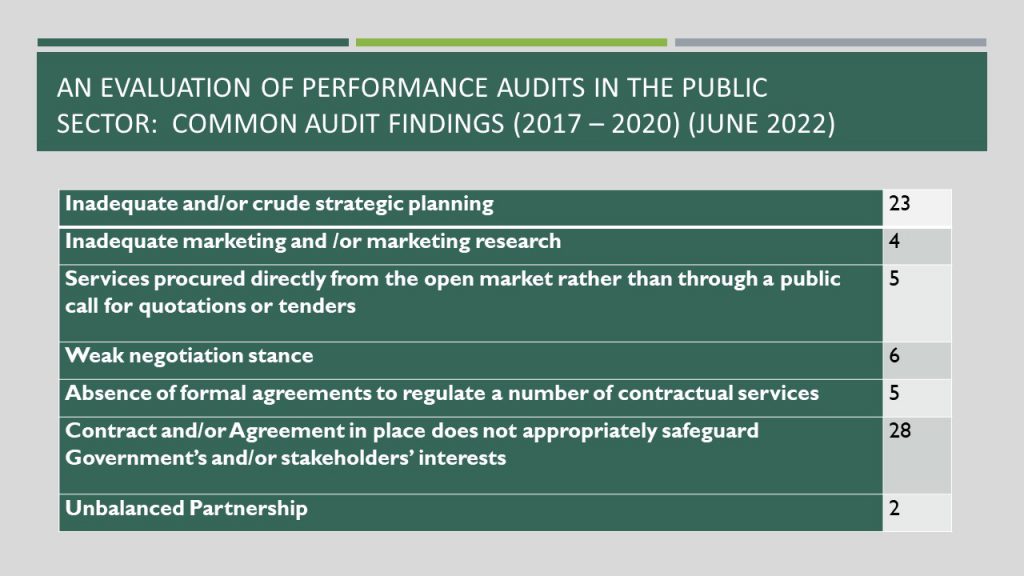Public procurement: NAO flags its concerns

Weak measures to safeguard government’s own interests and inadequate planning were the two most common shortcomings flagged by the National Audit Office in an analysis on public procurement. The exercise was carried out on the strength of various performance audits within the public sector between 2017 and 2020.
It transpired that there were 28 instances whereby the contract or agreement in place did not appropriately safeguard government’ or the stakeholders’ interests. The second most common concern, which was flagged on 23 occasions, was about inadequate or crude strategic planning. Examples of the latter include instances whereby calls are issue belatedly, thus rendering government’s negotiating rather awkward with little room for manoeuvrability. As a matter of fact, the NAO concluded that there were no less than 6 cases in which government’s position was weak from the outset. Other shortcomings flagged were the absence of a formal agreement to regulate a number of contractual services (5), services procured directly from the open market rather than through a public call for quotation or tenders (5), inadequate market research and an unbalanced partnership in which is skewed against government’s interests.

Public procurement is a high-risk area in view of the significant amount of public funds involves to the tune of millions, especially when contracts are adjudicated through direct order rather than a public call. This is why public procurement rules must be followed to minimise
risks of corruption and fraud.
In its analysis, this time based on the audit of the 2021 public accounts, the NAO warned once again on lack of strategic planning at sourcing stage, and of a fragmented procurement (presumably breaking down calls into small amounts) to bypass certain regulations. Other issues flagged where instances of obtaining quotations directly from selected suppliers rather than a public call.
Moreover, the NAO expressed concern on the practice of awarding direct contracts without obtaining the necessary approvals, numerous variations from the original budget, renewal of contracts not covered by the original tender and the absence/inadequate performance guarantees covering the required amount.
Issues were also flagged at payment stage such as lack of adequate audit trail, non-compliance with VAT fiscal requirements, incomplete or untimely bill of quantities, payments for unverified works or unauthorized payments.
The NAO recommended that public procurement must be based on four fundamental pillars: transparency through the entire process, a fair treatment to ensure a level playing field for all, that citizens receive value for money and to have the necessary controls in place to safeguard against any abuses.
